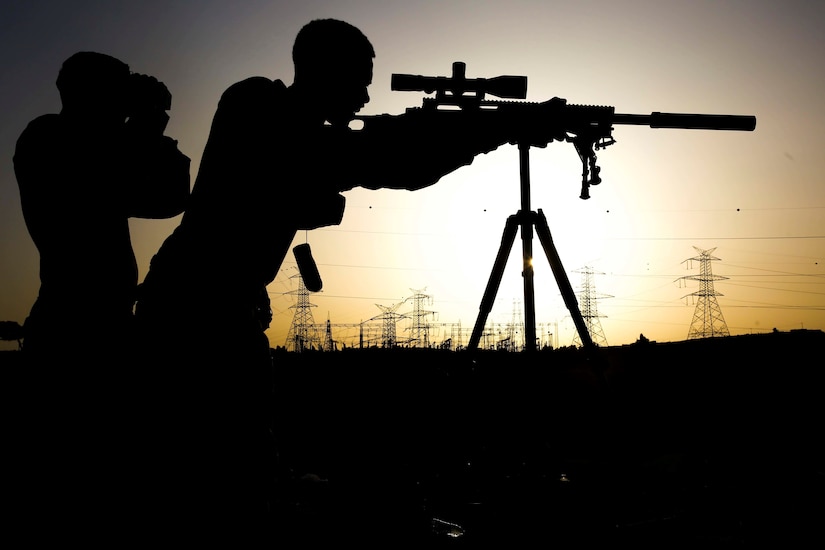By Marine Corps Cpl. Jonathan Sosner, DoD News, Defense
Media Activity
AMMAN, Jordan -- A shot is fired, and a small cloud of dust
kicks up. Seconds later, the ping of a bullet hitting a steel target 800 meters
away is heard. “Hit,” says the spotter. The shooter pulls back the bolt of the
suppressed M40A6 rifle and sends a new round into the chamber, ready to fire
again.
This is one of hundreds of repetitions every time the scout
sniper platoon with the 26th Marine Expeditionary Unit gets the chance to
train. However, it is not only the scout snipers who take part in this
precision cycle.
Professionally instructed gunmen, affectionately known as
“PIGs,” make up the majority of the scout sniper platoon, working alongside the
scout snipers, also known as hunters of gunmen, or “HOGs,” to accomplish the
mission.
Made up of infantry Marines who have been carefully selected
based on marksmanship and physical and mental strength, among other factors,
the PIGs are a critical asset to the success of the scout sniper platoon.
“The PIGs and HOGs have similar jobs on paper; however, the
HOGs have the advantage of the formal training that they get at the scout
sniper school and all of the experience that comes with it,” said a Marine
assigned to the scout sniper platoon whose name is being withheld for security
reasons. “Once we go out as a platoon, though, everyone gets the same training
and we all work side by side.”
Step Toward Certification
Marines in the scout sniper platoon proudly associate
themselves as PIGs, as it is the step that all Marines go through to become
certified as a scout sniper.
“Most Marines who are PIGs are selected through an
indoctrination program where they are put through a series of mental and
physical tests to see if they have what it takes,” the Marine said. “There is a
lot of classroom time where they teach you the basics, and then they send you
out to the field to test your skills as an infantryman, as well as throw you
into new situations to see how you will react.”
While the vast majority of PIGs are infantry Marines, Navy
corpsmen and communication Marines also are trained and fully integrated into
the unit.
Much of the time as a PIG is spent trying to absorb the
knowledge and experience of the HOGs.
“The scout snipers won’t be there forever,” the Marine said.
“Just like you have new Marines coming into a line company that need to be
mentored and developed, PIGs are mentored and developed by the HOGs to hopefully
go on and become scout snipers.”
Since the 26th MEU’s deployment has begun, the PIGs and HOGs
have trained side by side in Israel, Djibouti and Jordan, refining their skills
more and more with each exercise.
“We’ve had some great opportunities to train since we’ve
been deployed, and the PIGS have been able to get better and better with each
exercise,” the Marine said. “The PIGs are the future of the sniper community,
and this training helps us make sure that we’re ready, should we get the
opportunity to someday become a HOG.”








